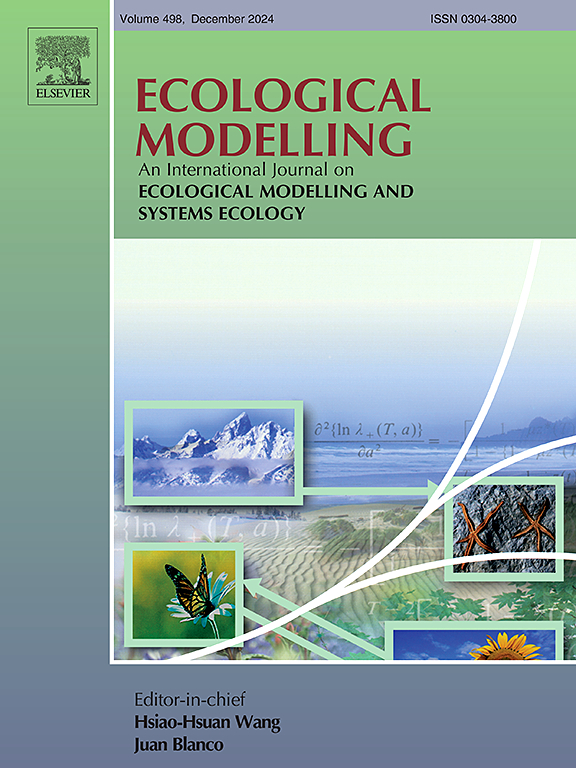Simulating endogenous institutional behaviour and policy implementation pathways within the land system
IF 2.6
3区 环境科学与生态学
Q2 ECOLOGY
引用次数: 0
Abstract
Policy interventions have substantial effects on land use change, providing key levers for multiple objectives, including mitigating climate change and biodiversity loss, and maintaining food security. Policy effects are often complicated, conflicting, and subject to regular change. Despite this, land system models typically treat policies as simple, exogenous modifications to models. To better represent the dynamic nature of policy-making, we develop an endogenous institutional model that can be embedded within land system models, here exemplified by an agent-based model. Numerical experiments are conducted to examine an institution with two policies targeting the production of ecosystem services. We find a clear scope for simulation-based exploration of policy-making, with emergent processes including the marginal diminishing effect of economic policy interventions, asymmetric spill-over effects for different ecosystem services, and trade-offs between policy goals. The endogenous institutional model demonstrates the potential to reveal various emergent patterns with important consequences for land systems.
模拟土地系统内的内生制度行为和政策实施路径
政策干预对土地利用变化具有重大影响,为实现多种目标提供了关键杠杆,包括减缓气候变化和生物多样性丧失,以及维持粮食安全。政策的效果往往是复杂的、相互矛盾的,并且受制于定期变化。尽管如此,土地系统模型通常将政策视为模型的简单外生修改。为了更好地体现政策制定的动态性,我们开发了一个内源性制度模型,可以嵌入到土地系统模型中,这里以基于主体的模型为例。本文采用数值实验的方法,考察了一个具有两种生态系统服务生产政策的制度。我们发现基于模拟的政策制定探索具有明确的范围,其中包括经济政策干预的边际递减效应,不同生态系统服务的不对称溢出效应以及政策目标之间的权衡。内生制度模型展示了揭示对土地系统具有重要影响的各种新兴模式的潜力。
本文章由计算机程序翻译,如有差异,请以英文原文为准。
求助全文
约1分钟内获得全文
求助全文
来源期刊

Ecological Modelling
环境科学-生态学
CiteScore
5.60
自引率
6.50%
发文量
259
审稿时长
69 days
期刊介绍:
The journal is concerned with the use of mathematical models and systems analysis for the description of ecological processes and for the sustainable management of resources. Human activity and well-being are dependent on and integrated with the functioning of ecosystems and the services they provide. We aim to understand these basic ecosystem functions using mathematical and conceptual modelling, systems analysis, thermodynamics, computer simulations, and ecological theory. This leads to a preference for process-based models embedded in theory with explicit causative agents as opposed to strictly statistical or correlative descriptions. These modelling methods can be applied to a wide spectrum of issues ranging from basic ecology to human ecology to socio-ecological systems. The journal welcomes research articles, short communications, review articles, letters to the editor, book reviews, and other communications. The journal also supports the activities of the [International Society of Ecological Modelling (ISEM)](http://www.isemna.org/).
 求助内容:
求助内容: 应助结果提醒方式:
应助结果提醒方式:


